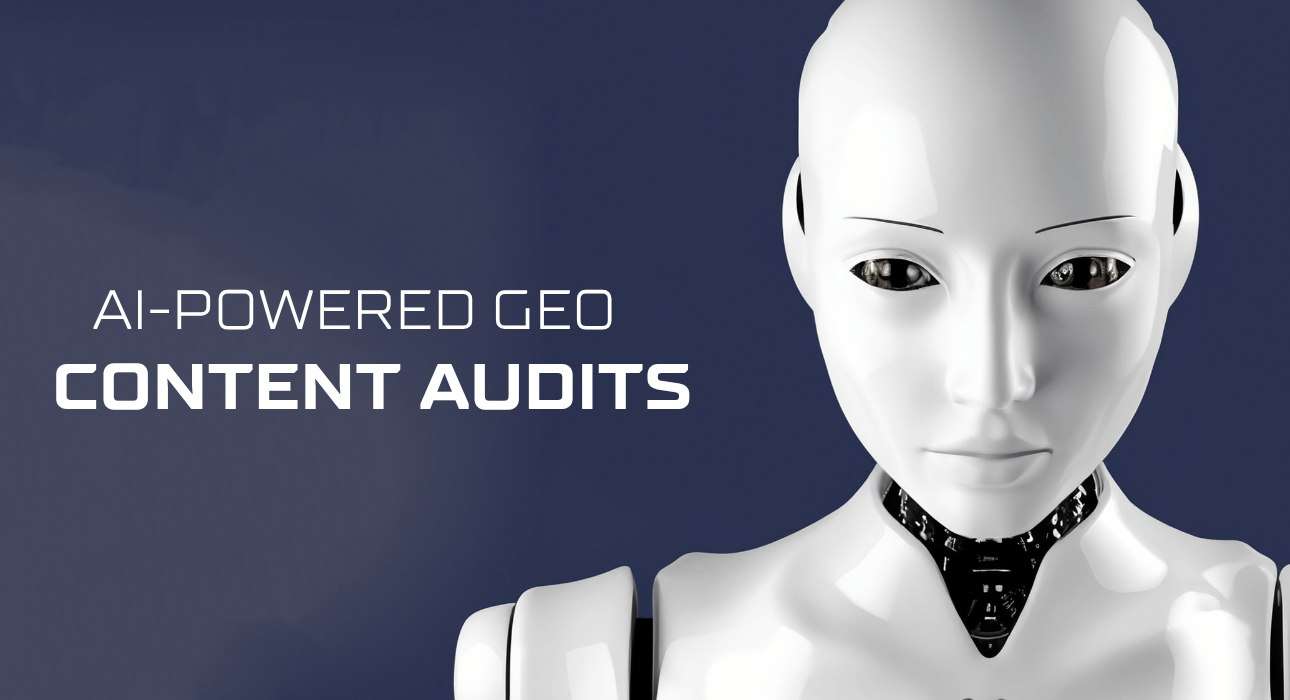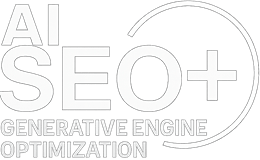Cursor
mode
SEO PLUS GEO
AI-Powered GEO Content Audits

AI-powered content audits are transforming how marketers optimize for GEO (Generative Engine Optimization). Traditional audits rely on manual evaluation and keyword tracking, while AI-based GEO audits go deeper — analyzing entity relevance, semantic coverage, and user intent alignment. This guide explains how to perform GEO-focused audits using artificial intelligence to improve content visibility in AI-driven search environments.
What is a GEO Content Audit?
A GEO content audit evaluates how well your web pages are optimized for generative search engines that use AI to understand topics, entities, and relationships rather than just keywords. It identifies gaps in semantic coverage and authority signals.
Entity Mapping and Coverage
AI tools scan your content to identify key entities and evaluate how well they align with user intent. They suggest additional related entities to improve semantic completeness.
Topic Clusters and Relevance
Evaluate whether your content forms part of a well-structured topic cluster. AI audits check for missing articles, broken interlinks, or weak supporting content that dilutes authority.
Contextual Matching
GEO audits assess how well your content contextually answers complex search queries using natural language, long-tail terms, and FAQ structures.
Benefits of AI in GEO Auditing
Artificial intelligence enhances GEO content auditing by offering deeper, faster, and more accurate insights than manual analysis can provide.
Automated Entity Extraction
AI tools like On-Page.ai and MarketMuse can scan your pages and extract relevant entities, helping ensure you’re aligning with how SGE understands topics.
Semantic Gap Detection
AI detects missing semantic elements that your competitors are ranking for. These gaps indicate topics or entities you should cover to stay competitive.
Smart Recommendations
Rather than just flagging issues, AI platforms provide actionable improvement suggestions based on real-time SERP data and user behavior analysis.
- AI SEO +GEO Services
- SEO Services
- Social Media Services
- Website Services
- Ads & Campaign Services
- Reach Us
Steps to Run a GEO Content Audit Using AI
Conducting a GEO content audit with AI tools involves a series of structured steps to ensure thorough coverage and optimization.
1. Crawl and Extract Data
Use tools like Screaming Frog, Surfer SEO, or NeuronWriter to crawl your site and extract all content and meta data.
2. Perform Entity Analysis
Run each page through NLP-based tools (like Google's NLP API or Clearscope) to analyze entity mentions, sentiment, and semantic relevance.
3. Benchmark Against Competitors
Compare your entity coverage and topic depth with top-ranking competitors. Identify what they’re doing better in terms of structure and intent fulfillment.
4. Assess Internal Linking and Topic Clustering
Ensure that your content is linked contextually to other relevant pages. A proper internal linking structure is vital for GEO performance.
5. Generate AI-Powered Suggestions
Use AI content optimization platforms to receive detailed, entity-based suggestions that improve contextual richness and generative search visibility.
Tools to Use for AI-Powered GEO Audits
Several modern platforms are tailored for GEO-style audits, powered by AI and natural language processing (NLP).
Surfer SEO
Surfer analyzes your content against top results, providing NLP-driven keyword and entity recommendations with a GEO-aligned scoring system.
Frase
Frase offers content briefs and audits with semantic depth analysis and automated suggestions for improving AI readability.
MarketMuse
This tool benchmarks your topical authority and identifies content gaps based on entity presence and competitive analysis.
On-Page.ai
A next-gen GEO audit tool that emphasizes natural language intent, AI-based keyword scoring, and automated internal linking recommendations.
Conclusion – Elevate SEO with GEO Audits
AI-powered GEO content audits offer a revolutionary way to ensure your site remains competitive in an SGE-dominated search landscape. By focusing on entity mapping, semantic relevance, and generative intent, these audits help optimize your content for the future of search. Embrace AI-driven analysis to transform your content strategy, outperform competitors, and achieve higher rankings in AI-enhanced search experiences.



